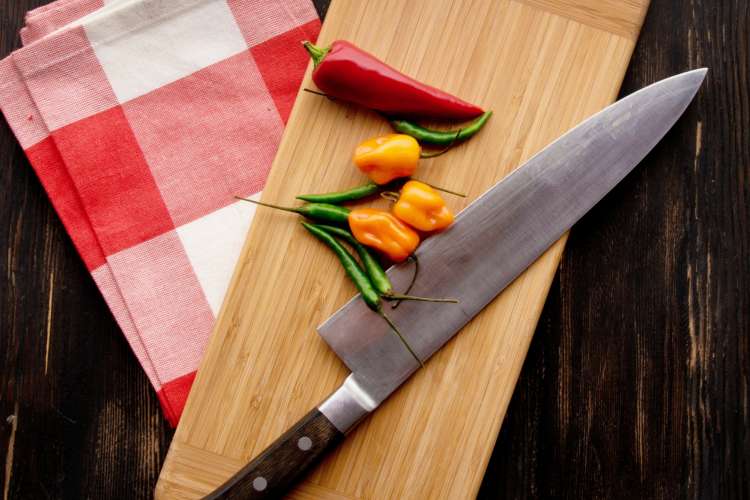As a kitchen professional, you understand the value of a good knife. German knives, known for their precision, durability, and superior craftsmanship, are a staple in professional kitchens worldwide. However, maintaining these exquisite tools requires more than just occasional sharpening. Knowing how to clean German knives effectively is crucial for preserving their integrity and performance.
In this article, well delve into the essentials of cleaning German knives, ensuring they remain in pristine condition. Whether you're looking to extend the life of your tools or simply ensure the highest level of hygiene, these tips will guide you in the right direction.

The Importance of Proper Knife Cleaning
Properly cleaning your German knives is not just about aesthetics; it's about maintaining the blade's sharpness and preventing corrosion. German knives are typically made from high-quality stainless steel, which although resistant to rust, can still be damaged if not cared for correctly.
Regular cleaning prevents food residue from sticking to the blade, which can dull the knife over time. Moreover, the buildup of moisture and acids from food can lead to corrosion, even in stainless steel blades. By incorporating a thorough cleaning routine, you ensure your knives remain functional and safe to use.
Step-by-Step Guide to Cleaning German Knives
1. Immediate Rinsing
After each use, it's important to rinse your German knife under warm water. This immediate step prevents food particles from drying and sticking to the blade, making the cleaning process easier and more effective.
2. Use a Gentle Dish Soap
Once rinsed, apply a small amount of gentle dish soap to a soft sponge or cloth. Avoid abrasive materials that can scratch the blade. Gently scrub the knife, paying attention to both the blade and the handle.
3. Avoid the Dishwasher
While it might be tempting to toss your knives into the dishwasher, it's best to avoid this. The harsh detergents and high heat can damage the knife's edge and handle. Handwashing your knives is always the preferred method.
4. Dry Thoroughly
After washing, dry your knife immediately with a soft towel. Leaving it to air dry can lead to water spots or even corrosion. Ensure that both the blade and handle are completely dry before storing.
Maintaining Your Knife's Edge
Cleaning is only part of the maintenance routine. To ensure your German knives remain sharp and effective, regular honing and sharpening are necessary. For more on maintaining your knife's edge, check out our guide on blade angles.
Storing Your Knives Safely
Proper storage is also crucial for maintaining your knives. Consider using a knife block or magnetic strip, which keeps the blades separate and reduces the risk of dulling. For more storage tips, see our article on knife handle scales.
Common Mistakes to Avoid
Even with the best intentions, mistakes in knife care can happen. Here are a few common pitfalls:
1. Using Abrasive Cleaners
Avoid using abrasive sponges or cleaners, as they can scratch the blade and compromise its finish.
2. Ignoring Handle Care
The handle is just as important as the blade. Regularly clean and dry the handle to prevent damage and ensure a firm grip.
3. Storing Knives Loose
Storing knives in a drawer without protection can lead to dulling and increase the risk of accidents. Always use a sheath or knife block.
Additional Resources
For more in-depth information on German knives, their composition, and how they compare to other types of cutlery, visit this detailed guide.

FAQ
1. Can I use vinegar to clean my German knives?
While vinegar is a natural cleaner, it's acidic nature can corrode the blade over time. Stick to gentle dish soap for regular cleaning.
2. How often should I sharpen my German knives?
Frequency depends on usage, but generally, honing should occur every few uses, while sharpening might be necessary every few months.
3. Whats the best way to remove stubborn stains?
If you encounter stubborn stains, use a mixture of baking soda and water. Apply gently with a cloth, avoiding abrasive scrubbing.


























